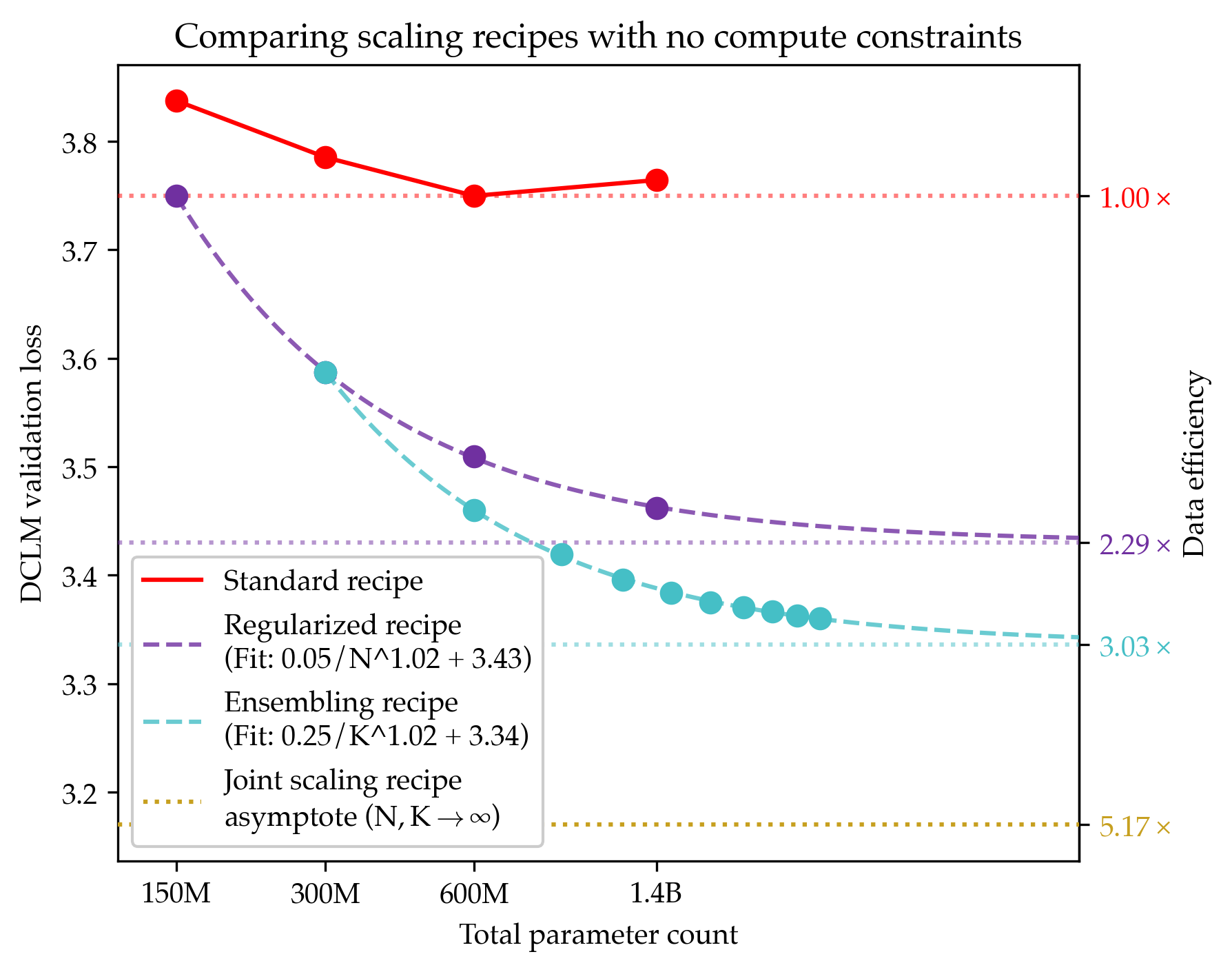Table of Contents
Pre-training under infinite compute September 2025
Data-efficient pre-training should better leverage infinite compute.
Since compute grows much faster than web text available for language model pre-training, we ask how one should approach pre-training under fixed data and no compute constraints. We first show that existing data-constrained approaches of increasing epoch count and parameter count eventually overfit, and we significantly improve upon such recipes by properly tuning regularization, finding that the optimal weight decay is 30x larger than standard practice. Since our regularized recipe monotonically decreases loss following a simple power law in parameter count, we estimate its best possible performance via the asymptote of its scaling law rather than the performance at a fixed compute budget. We then identify that ensembling independently trained models achieves a significantly lower loss asymptote than the regularized recipe. Our best intervention combining epoching, regularization, parameter scaling, and ensemble scaling achieves an asymptote at 200M tokens using 5.17x less data than our baseline, and our data scaling laws predict that this improvement persists at higher token budgets. We find that our data efficiency gains can be realized at much smaller parameter counts as we can distill an ensemble into a student model that is 8x smaller and retains 83% of the ensembling benefit. Finally, our interventions designed for validation loss generalize to downstream benchmarks, achieving a 9% improvement for pre-training evals and a 17.5x data efficiency improvement over continued pre-training on math mid-training data. Our results show that simple algorithmic improvements can enable significantly more data-efficient pre-training in a compute-rich future.
Multi-Task ICL September 2023
Learning shared safety constraints from multi-task demos.
Regardless of the particular task we want them to perform in an environment, there are often shared safety constraints we want our agents to respect. Manually specifying such a constraint can be both time-consuming and error-prone. We show how to learn constraints from expert demonstrations of safe task completion by extending inverse reinforcement learning (IRL) techniques to the space of constraints. Intuitively, we learn constraints that forbid highly rewarding behavior that the expert could have taken but chose not to.
Unfortunately, the constraint learning problem is rather ill-posed and typically leads to overly conservative constraints that forbid all behavior that the expert did not take. We counter this by leveraging diverse demonstrations that naturally occur in multi-task settings to learn a tighter set of constraints. We validate our method with simulation experiments on high-dimensional continuous control tasks.
